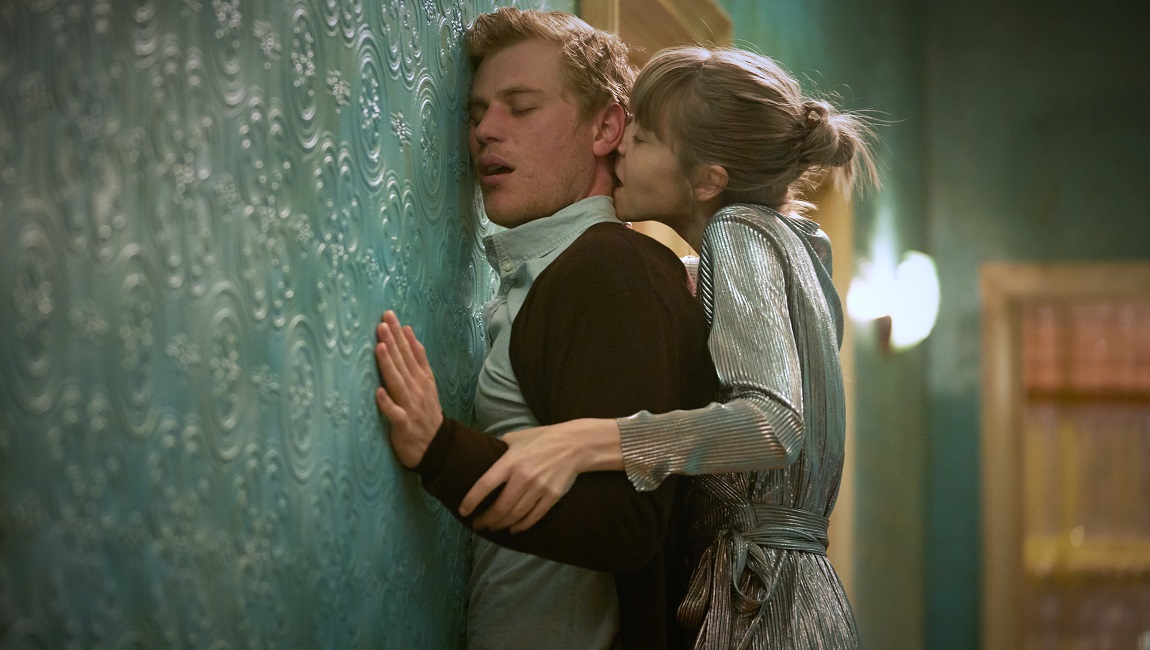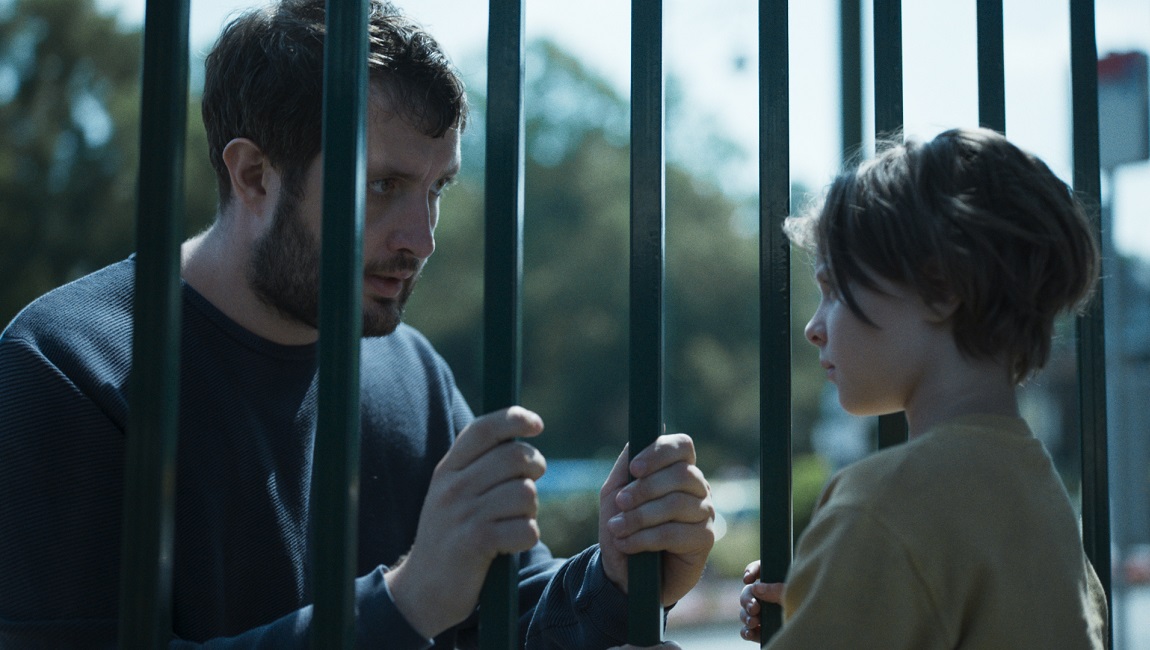Cordelia engages as an exercise in tension for a while, but is utterly undone by a slogging climax that opts for conceptual indulgence and dank metaphor.
Adrian Shergold’s psychological thriller Cordelia found a bit of Internet infamy recently when the film’s official poster went viral. Featuring EMMA. hunk Johnny Flynn pressed against a wall while co-star Antonio Campbell-Hughes — clad in a gorgeous silver dress that instantly recalls Kristen Stewart in Personal Shopper — voraciously kisses the back of his neck and tightly grips his forearm, social media was left to ponder: is this a film about Flynn getting pegged? And thus, could this be the greatest movie ever made? Unfortunately, nothing so salacious happens in Cordelia, a portrait of the devastating effects of PTSD that takes the form of both a heavy-handed allegory and a run-of-the-mill suspense flick.
Campbell-Hughes, who co-wrote the script with Shergold, stars as the titular woman, a jangled ball of nerves still recovering from some unnamed trauma that occurred 12 years prior. Suffering from severe social anxiety and borderline agoraphobic, Cordelia shares a flat with her identical twin sister, Caroline (spoiler: also Campbell-Hughes), who seems both physically and emotionally exhausted from having to care for her sibling for so long. An impromptu vacation, however, forces Cordelia away from the protective wing of her sister, as she is left to fend for herself and confront demons she has long attempted to keep buried, brought to the surface by dreamboat neighbor and cellist Frank (Flynn), who pursues Cordelia with passionate abandon. But as luck would have it, Cordelia also begins to receive numerous phone calls from a mysterious voice that seems to be watching her from afar. Could this be the too-good-to-be-true Frank, who also has candid pictures of both Cordelia and Rose on his phone, and who at one point sneaks out of a bar because he doesn’t want to be recognized?
For its part, Cordelia knows its central mystery has less to do with Frank’s motives and more with why Cordelia pursues a relationship with someone so obviously suspect. What exactly is the protagonist’s endgame, as her pursuit seems to be wreaking havoc on her fragile emotional and psychological state? Shergold manages to elicit quite a bit of tension in the movie’s first hour, the lush 35 mm filmmaking giving texture to the film’s deceptively simple production design. The majority of Cordelia takes place within rundown apartments, captured in gorgeous wide shots that highlight the jagged bricks, peeling paint, and shadowy recesses always on the verge of engulfing our protagonist. The symbolism is obvious, but it’s rather surprising how much mileage Shergold is able to get out of the ominous ring of a landline telephone. Cellos and violins squeal and moan on the soundtrack while empty, dark rooms are investigated, and there’s something almost comforting about the old school thrills being produced, Shergold’s skills proving most effective. Unfortunately, just as events reach what should be their climactic peak, the film abandons anything resembling momentum, the equivalent to taking a simmering pot of water and throwing it into the deep freeze. It isn’t hard to figure out what Shergold and Cambell-Hughes are up to here: PTSD takes on the form of a literal stalker who shows up when defenses are down, an adversary who proves impossible to defeat. But the filmmakers deliver their message in the most ham-fisted way possible, robbing it of any of the tension and dread it had so painstakingly established.
None of this is helped by the fact that Cordelia is defined solely by her trauma, or that Frank is a two-dimensional dolt, even if this is by design. Shergold and Campbell-Hughes fail to realize that, in order for an allegory to be successful, you have to care about the characters and the situations in which they find themselves. Cordelia, by contrast, is artistic masturbation, its creators getting off on their supposed cleverness without ever once considering the viewer. It must also be said that the cause of Cordelia’s trauma is teased throughout the film, and considering the storyline, it makes sense that this could possibly be a topical metaphor for the #MeToo Movement. Instead, once revealed, the choice makes no thematic sense, and seems cherry-picked simply because of its outrageousness. The film’s ending is especially frustrating, as it stops on a note of ambiguity that is admittedly appropriate but in no way dramatically satisfying. The whole thing is also quite cynical in its portrayal of PTSD, presenting its sufferers as individuals incapable of healing or improvement, which is certainly a bit of troublesome messaging. Ultimately, Cordelia needed 100% more pegging and 90% less hectoring. This is the formula of the future. Hollywood, take note.
Published as part of Before We Vanish — May 2022.







